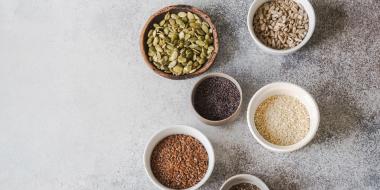Going off birth control is such an exciting transition, but it may also come with some hesitation and uncertainty because we are not sure how the body may react; every woman’s body is different. The good news is that there are many ways we can support the body during this transition, and with some preparation and a few nutrition and lifestyle practices, we can help minimize—and hopefully avoid—post-birth control symptoms.
What Does the Pill Do?
The pill essentially shuts down your natural menstrual cycle. When there’s no cycle, there’s no ovulation. Women, however, are meant to ovulate; this sixth “vital sign” is essential not only for reproduction but also to promote overall health and wellness.
WITHDRAWAL SYMPTOMS
Post-birth control withdrawal symptoms can arise when coming off the pill, which may include:
- hormonal imbalances
- long or missing periods
- mood fluctuations
- PMS-like symptoms
- weight fluctuations
- hair loss
- acne or changes in skin
- changes in libido
- emotional changes
One of the main symptoms is post-pill acne, which can wreak havoc on the skin due to hormonal imbalances, nutrient deficiencies, gut dysbiosis, and sluggish detox pathways. The best thing we can do is listen to our bodies and provide space and time to find harmony and rebalance.
Women experiencing post-pill withdrawal symptoms, please take heart: they won’t last forever. They could last up to a year or more, but typically spike at the three- to six-month mark. For those of you that are suffering, here are some supportive holistic nutrition tips to mitigate these unwanted symptoms and help the body find balance. Be kind to yourself during this transition.
POST-PILL SUPERFOODS
Fibre
Adequate fibre (and water) is essential to support your body's digestion and detoxification pathways. Fibre helps maintain the daily and regular bowel movements which are necessary for eliminating unwanted toxins, including excess hormones.
Nutrition Tip: Brown rice, kale, lentils, and steel-cut oats
Healthy Fats
Healthy fat is key to building hormones like progesterone, repairing the gut, balancing blood sugar, and healing acne naturally.
Nutrition Tip: Avocado, quality olive oil, grass-fed butter, and nuts/seeds
Omega-3s
Important for keeping the skin healthy and nourished, omega-3s can help balance hormones and reduce inflammation as well.
Nutrition Tip: Chia seeds, walnuts, wild salmon
Antioxidants
Antioxidants are important in preventing free radical damage and oxidation, which can lead to dull-looking skin, acne scarring and pigmentation, and slow healing.
Nutrition Tip: Dark leafy greens and red onions
Probiotic-Rich Foods
The pill disrupts the gut lining and depletes the gut microbiome, so it's important to give your gut some love. If you feel good after consuming fermented foods, they can be a great food source that helps replenish good gut bacteria and calm inflammation in the body.
Nutrition Tip: Bone broth, collagen, coconut kefir, raw sauerkraut, and kimchi
FOODS TO AVOID
In addition to superfoods to add to your routine, think about foods to avoid to help reduce inflammation further and balance blood sugar. A couple of foods that commonly contribute to inflammation in the body and exacerbate post-pill symptoms are sugar and gluten.
Sugar
Sugar causes inflammation within the body, which will directly affect hormones. It does this in two ways:
- Sugar sticks to other cells in the body and triggers the immune system to make inflammatory cytokines to fight these sugar-damaged cells.
- Too much sugar causes insulin resistance, which messes with the body’s ability to balance blood sugar levels. This results in the pancreas having to dump out more insulin to keep everything in check. Too much insulin impairs ovulation and stimulates the ovaries to produce more testosterone. This free testosterone turns into free estrogen, and the body just can’t keep up.
Gluten
This can be a very controversial topic, especially now that going gluten-free is a mainstream health trend. Wheat affects everyone differently due to varying genetics, gut microbiomes, and intestinal permeability. Gluten sensitivity is an inflammatory response that typically manifests itself as digestive symptoms. As we explored earlier, gut health is foundational to overall health and is linked to systemic inflammation.
REDUCE LIVER IRRITANTS
As discussed, the pill contributes to sluggish detox pathways, and opening these channels is key to rebalancing and finding harmony for our hormones and skin. During the post-pill transition, it can be supportive to reduce liver irritants so the liver can focus on eliminating excess hormones and toxins, instead of ridding itself of things like coffee and alcohol.
Lastly, keep in mind that a hormone cycle is three months. Giving the body time and space to heal really helped me during this time. If you can include these supportive tips approximately three months before stopping the pill, that will give the body extra support to make the transition more easily. If you’ve already gone off the pill and are noticing symptoms, it’s never too late to consider some of these transitional tips for your daily routine.
Addressing post-pill symptoms naturally is not an overnight cure. It is a continual process of body literacy and self-love. One of the most supportive things to consider during this time, in addition to nutrition, is tuning into the body’s unique signals and making changes that allow you to feel your best. Tapping into these signals becomes so much easier as the body begins to find its natural cycle and balance again.









